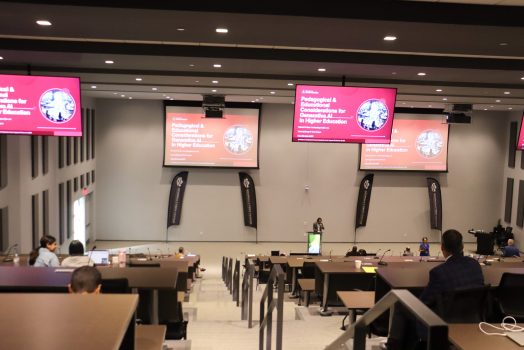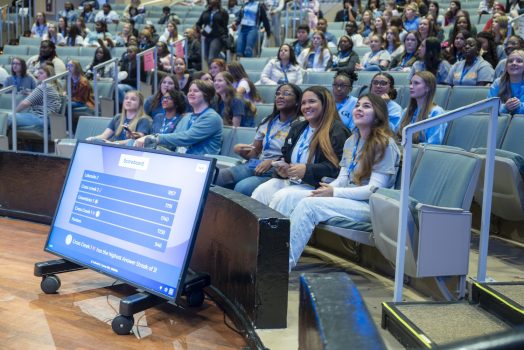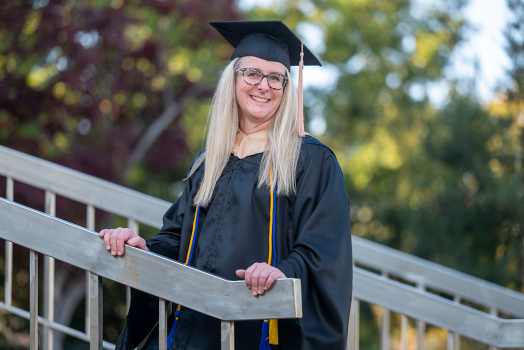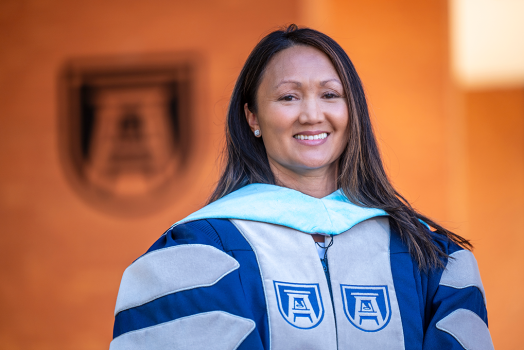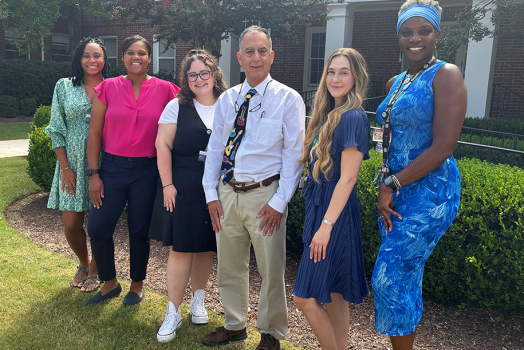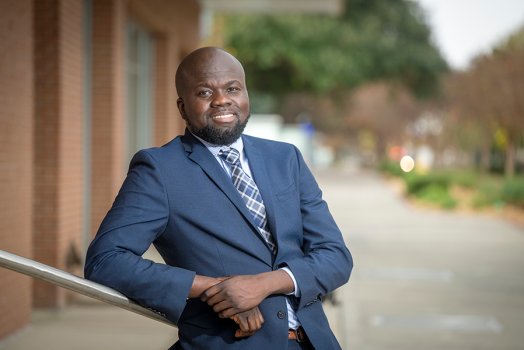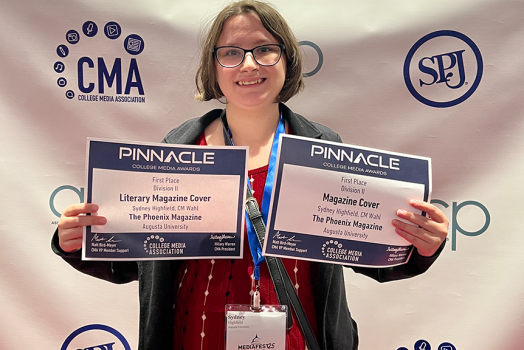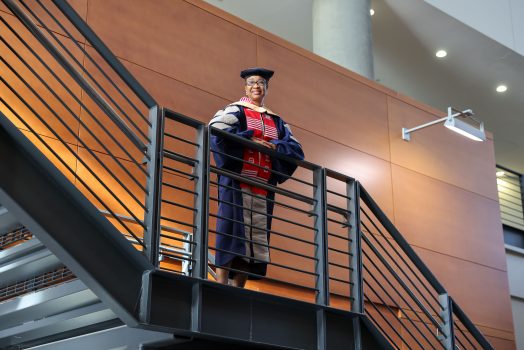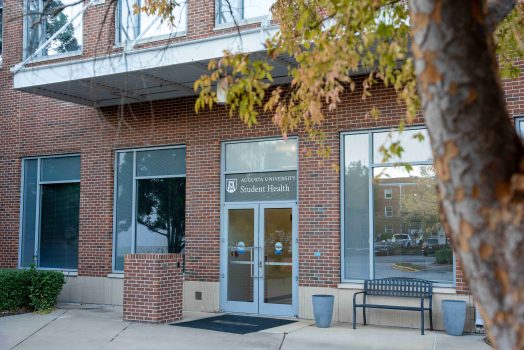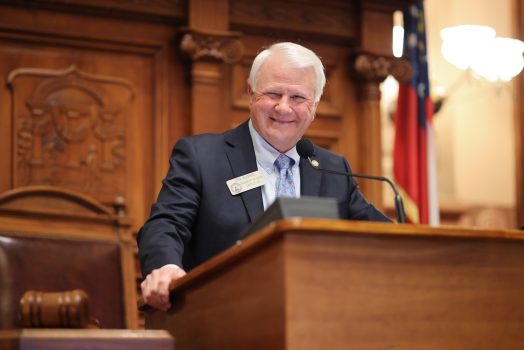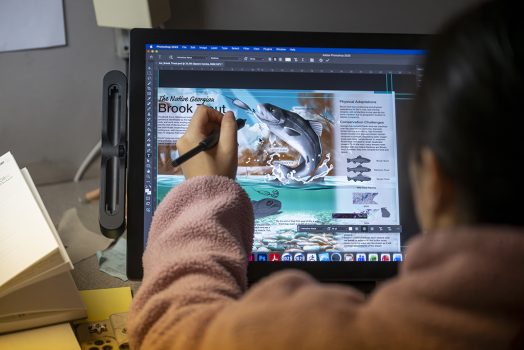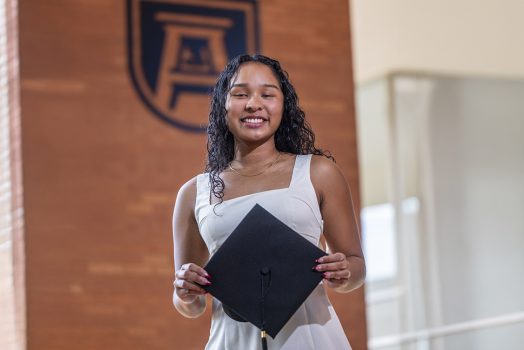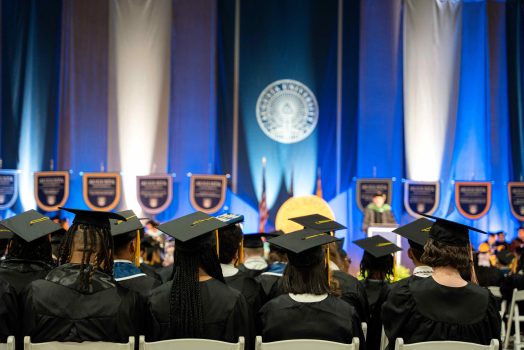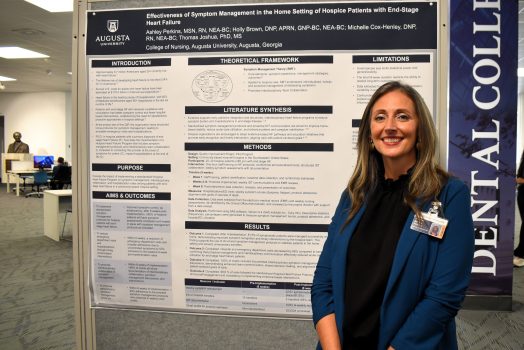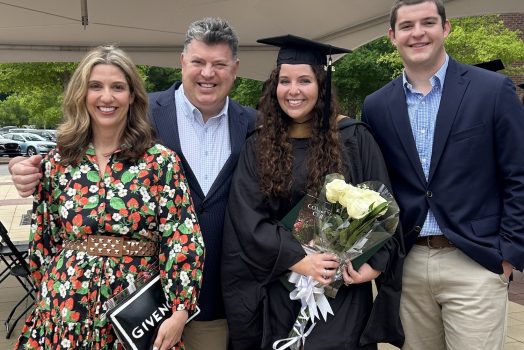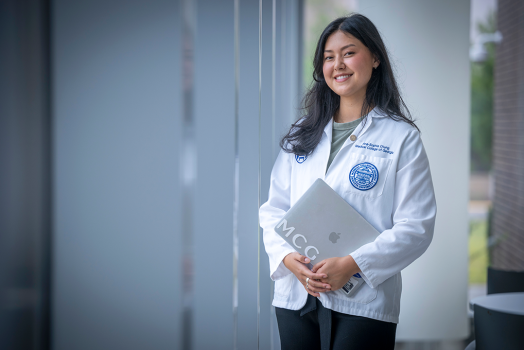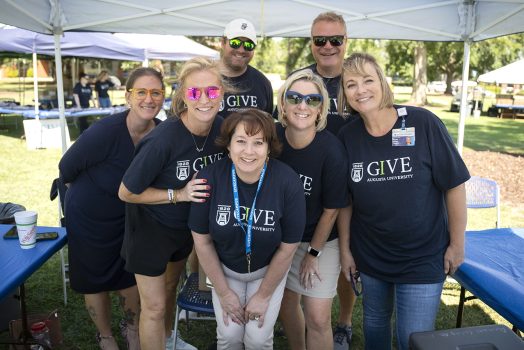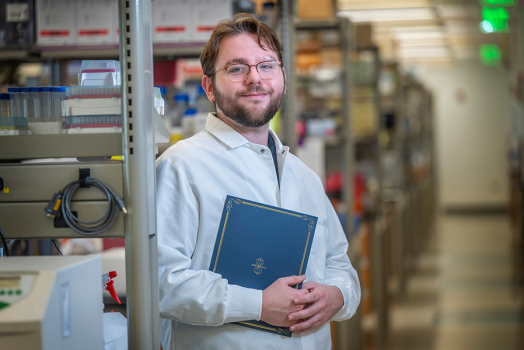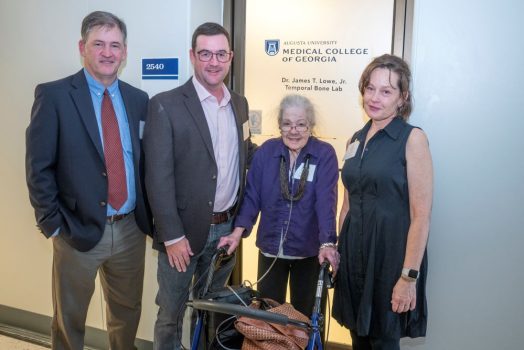“This workshop reflects our goal to build a strong foundation for AI research and education at Augusta University," says Hisham Daoud, PhD.
“Do not allow anyone to talk you out of being a teacher. The blessings that you get are far greater than the challenges that you'll face," says Judi Wilson, EdD.
"I want to be a part of AU. I'd like a new challenge and something where I can use my years of experience and education and take it to another level,” Ashley Christman says.
“One of my professors described getting your doctorate as an exercise in persistence, and I've always remembered that,” says Joann Denemark, EdD.
“Ultimately, the hope is to find other avenues to reduce the risk for depression and depression symptoms,” says Vaughn McCall, MD.
"If anyone asks me where they’ll find support, I have evidence that AU provides it," says Obed Koomson, PhD.
"It is fantastic to see our students continue to earn national recognition for their work in our student-run publications," says Kim Davies, PhD.
“I pay close attention to craftsmanship. It’s very important. Katy is persistent, dedicated and her level of craftsmanship is unequaled around here," says Andy Hauger, PhD.
“I knew I wanted to go further in nursing. I didn’t imagine a terminal degree like the DNP at the time, but I knew I wanted to do more,” says Tyra Newton.
“This move aligns with our mission to provide life-changing, life-saving care by offering our students the highest standard of care," says Scott Wallace, PhD.
House Speaker Rep. Jon Burns will deliver the keynote address at Augusta University’s Undergraduate Commencement on Dec. 11.
Augusta University's partnership with Georgia DNR collaboration lasted six weeks, and the finished illustrations will be used throughout the state.
“I wanted to do something with logic and reasoning and not just having to memorize everything. I took my first Python class. and I fell in love with it," says Mia Thompson.
AUs December commencement ceremonies will feature Natalie Mseis-Jackson as graduate speaker and Landon Gilbert as the undergraduate speaker.
"I felt like I reached a point in my career where I could do more, take my leadership further and effect more change," says Ashley Perkins.
Zach Powell, DMD, will be the keynote speaker at AU’s Graduate Hooding and Commencement Ceremony at 5 p.m. on Wednesday, Dec. 10.
“I was so excited because I've had all of these leadership opportunities over the last four years; I just feel like this honors all that work," says Ana-Sophia Chung.
“Through IGIVE, we’ve come together to build a brighter future for our students and community," says Jeff Snow.
"Identifying these populations may allow us to unveil populations that correlate with disease stage, tumor burden and therapy potential," says Austin Lowery.
“This lab is where the next generation of otolaryngologists will learn the anatomy that defines our specialty,” says Stil E. Kountakis, MD, PhD.
 Augusta University
Augusta University

